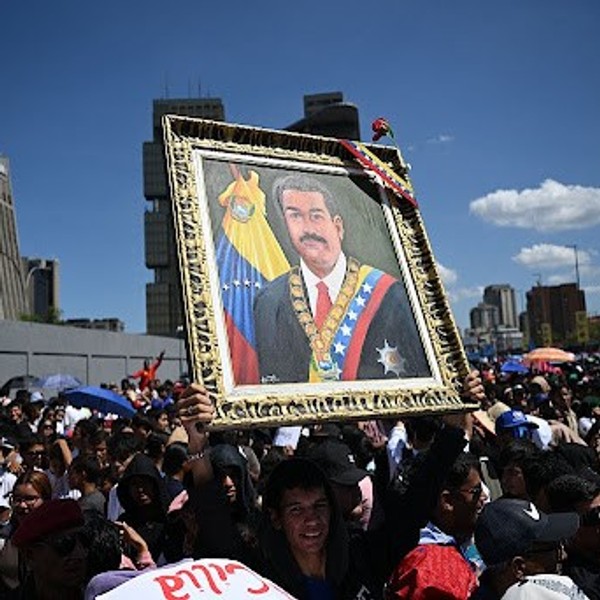The Trump Administration and the international community are focused on helping Venezuelans dislodge Nicholas Maduro from power and install Juan Guaido in the presidential palace. Guaido, the head of Venezuela’s National Assembly, is recognized by the United States and some 50 other countries as the legitimate leader of Venezuela.
Even though it is the focus of the moment, removing Maduro will not be the end of the process of recovery in Venezuela; it will only be the beginning. And, as hard as it has been to dislodge Maduro, the aftermath of the transition of power will be even more difficult, and the United States and its allies in the region must have a workable plan today for when that moment arrives.
There are at least four wickedly hard problems that await. The first is that under Maduro, Venezuela has become a narcotics state – not just a state that cannot get narcotics traffickers under control but a state that itself is involved in the drug trade. Indeed, in many ways, the Maduro government is a drug cartel posing as a government. All institutions of government have been infiltrated, and no one is sure how deep the involvement in the drug trade drug goes. It will take time and outside help for the new government to rid the country of this rot – from intelligence sharing to law enforcement assistance.
The second problem is that for the last several years, the nation’s military academy has been run by some of the hundreds of hardline Cubans in Venezuela and the Venezuelan officers who have graduated are hard-core Communists. They are true believers in Castro and his ideology. There is a risk that these young officers might resort to violence in the aftermath of the fall of Maduro; there is even a risk of civil war between the military that would support Guaido and these young communists. This too, will require outside assistance – perhaps even an international peace keeping force - for some period of time.
The third problem, is that rebels from Colombia, driven from that country by its successful counterinsurgency campaign, now reside in Venezuela, and these groups control a significant amount of Venezuelan territory, where they are involved in a variety of illegal businesses, including narcotics, gold, diamonds, and coltan, a mineral used in electronics. Dealing with these groups — largely a Marxist revolutionary group, the ELN, along with dissident remnants of the once Marxist-Leninist and now largely peaceful group, the FARC — might not be the first order of business, but fixing Venezuela will require eliminating the safe haven that these groups now enjoy. This may well require joint military action by a Venezuelan military loyal to the new government in cooperation with the Colombian military, supported by others in the region.
The fourth problem, not to be minimized, is the damage to the economy that has been done over the last 20 years by the left-wing populist policies of Maduro and his mentor Hugo Chavez. The economy is now half the size it once was; imports have fallen by 85 percent; the minimum wage does not buy enough calories to sustain the average person, with the migration of people fleeing this misery in the millions. Fixing the economy will require not only changes to policy but also significant assistance by the international community, including the IMF, World Bank, and nation states, including the United States.
The damage is getting worse every day. The existence of two governments in Caracas today really means there is no government there. Little is working, as demonstrated by the days-long power outage two weeks ago that brought the country to a standstill. The country is spiraling downward. The longer it takes for Maduro to go, the bigger the “day-after problem” we will face.
In the late 1990s, Colombia was battling a crisis created by a weak central government and the rise of drug cartels, left-wing revolutionary groups, and right-wing paramilitaries, and the United States responded with Plan Colombia, an aggressive multi-year effort that included diplomacy, foreign aid, and intelligence and military cooperation that, with the right Colombian leadership, turned the country around. It was work that spanned three Administrations – Clinton, Bush, and Obama. The situation in Venezuela is much worse than was the situation in Colombia – so that, if done right, Plan Colombia will pale in comparison to “Plan Venezuela.”
Why should the U.S. care? Two reasons: One, we have a national security imperative to act. The problems of Venezuela will not stay there. They will get exported in the form of refugees and drugs – to the region where it will create instability — and to the United States. A civil war, for example, would lead to millions of additional displaced people, with some making their way to our southern border. Importantly, a failed Venezuelan transition will be a magnet for all sorts of nefarious individuals and groups, including state and non-state actors, who could pose a threat to the region and the U.S.
And two, we have a moral obligation to act. The tragedy that is Venezuela was in the making for two decades – with little to no policy attention or the pursuit of policies that were not only ineffective but that actually made the situation worse.
The Trump Administration is to be commended for actively trying to deal with the issue of Venezuela -– but the need to do so will not end when Maduro steps down and Guaido steps into the presidential palace. Hopefully, the Administration is ready.
Michael Morell was deputy director of the CIA from 2010-2013, serving as acting director twice during that time.














